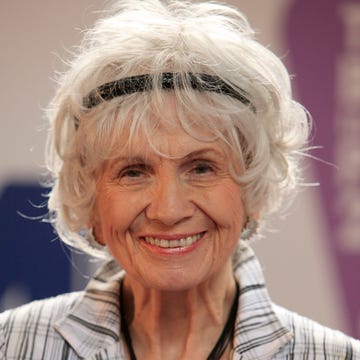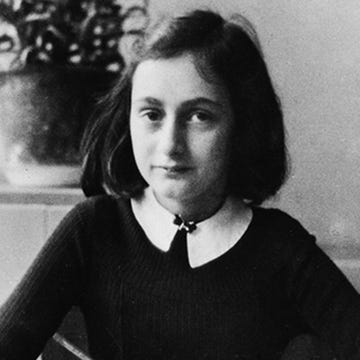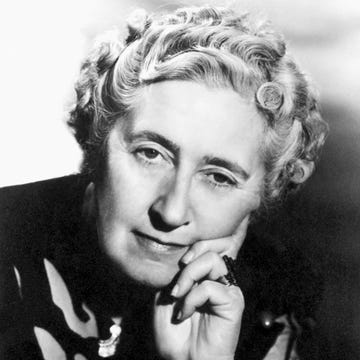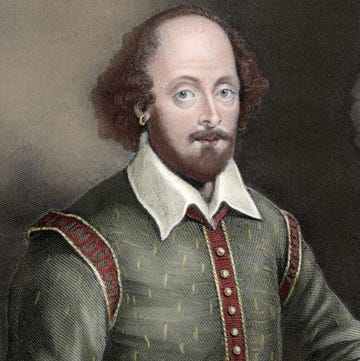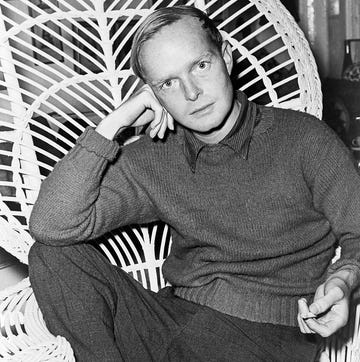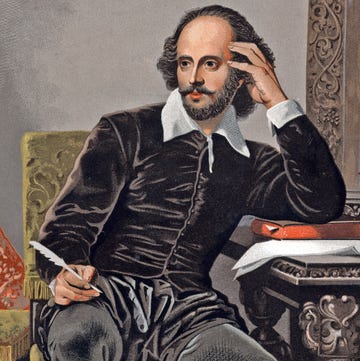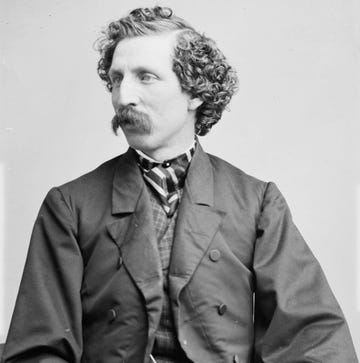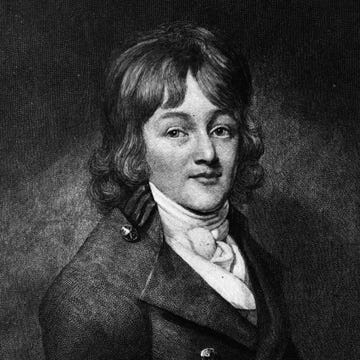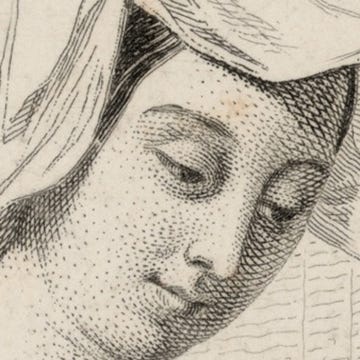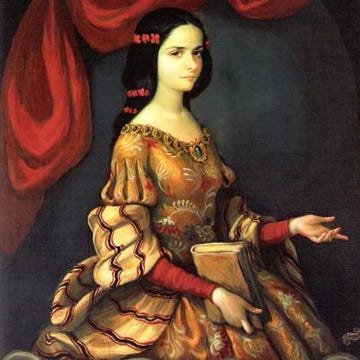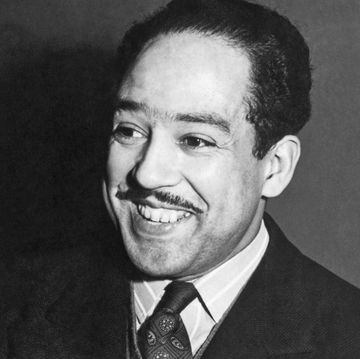(1809-1892)
Who Was Alfred Tennyson?
Born in England in 1809, Alfred, Lord Tennyson began writing poetry as a boy. He was first published in 1827, but it was not until the 1840s that his work received regular public acclaim. His "In Memoriam" (1850), which contains the line "'Tis better to have loved and lost than never to have loved at all," cemented his reputation. Tennyson was Queen Victoria's poet laureate from 1850 until his death in 1892.
Early Years and Family
Tennyson was born in Somersby, Lincolnshire, England on August 6, 1809. He would be one of his family's 11 surviving children (his parents' firstborn died in infancy). Tennyson grew up with two older brothers, four younger brothers and four younger sisters.
Tennyson's father was a church rector who earned a decent income, but the size of the family meant expenses had to be closely watched. Therefore, Tennyson only attended Louth Grammar School (where he was bullied) for a few years. The rest of his pre-university education was overseen by his well-read father. Tennyson and his siblings were raised with a love of books and writing; by the age of 8, Tennyson was penning his first poems.
However, Tennyson's home wasn't a happy one. His father was an elder son who had been disinherited in favor of a younger brother, which engendered resentment. Even worse, his father was an alcoholic and drug user who at times physically threatened members of the family.
In 1827, Tennyson had his first poetry published in Poems by Two Brothers (though actually three Tennyson brothers contributed to the volume). That same year, Tennyson began to study at Trinity College at Cambridge, where his two older brothers were also students.
It was at university that Tennyson met Arthur Hallam, who became a close friend, and joined a group of students who called themselves the Apostles. Tennyson also continued to write poetry, and in 1829, he won the Chancellor's Gold Medal for the poem "Timbuctoo." In 1830, Tennyson published his first solo collection: Poems, Chiefly Lyrical.
Tennyson's father died in 1831. His death meant straitened circumstances for the family, and Tennyson did not complete his degree. As a younger son, Tennyson was encouraged to find a profession, such as entering the church like his father. However, the young man was determined to focus on poetry.
Struggles of a Poet
At the end of 1832 (though it was dated 1833), he published another volume of poetry: Poems by Alfred Tennyson. It contained work that would become well known, such as "The Lady of Shalott," but received unfavorable reviews. These greatly affected Tennyson, and he subsequently shied away from publication for a decade, though he continued to write during that time.
After leaving Cambridge, Tennyson had remained close to Arthur Hallam, who had fallen in love with Tennyson's sister Emily. When Hallam died suddenly in 1833, likely from a stroke, it was a devastating loss for the poet and his family.
Tennyson developed feelings for Rosa Baring in the 1830s, but her wealth put her out of his league (the poem "Locksley Hall" shared his take on the situation: "Every door is barr’d with gold, and opens but to golden keys"). In 1836, Tennyson fell in love with Emily Sellwood, sister to his brother Charles's wife; the two were soon engaged. However, due in part to concerns about his finances and his health — there was a history of epilepsy in the Tennyson family, and the poet worried he had the disease — Tennyson ended the engagement in 1840.
Tennyson finally published more poetry in the two-volume Poems (1842). Highlights included a revised "The Lady of Shalott," and also "Locksley Hall," "Morte d'Arthur" and "Ulysses" (which ends with the well-known line, "To strive, to seek, to find, and not to yield"). This work was positively reviewed. Unfortunately, in 1842, Tennyson lost most of his money after investing in an unsuccessful wood-carving venture. (Tennyson would recover some of the funds in 1845, thanks to an insurance policy a friend had taken out for him.)
Poetic Success
"The Princess" (1847), a long narrative poem, was Tennyson's next notable work. But he hit a career high note with "In Memoriam" (1850). The elegiac creation, which contains the famous lines, "’Tis better to have loved and lost / Than never to have loved at all," incorporated Tennyson's sorrow about his friend Arthur Hallam's death. It greatly impressed readers and won Tennyson many admirers.
In addition to addressing his feelings about losing Hallam, "In Memoriam" also speaks to the uncertainty that many of Tennyson's contemporaries were grappling with at the time. Geologists had shown that the planet was much older than stated in the Bible; the existence of fossils also contradicted the story of creation. Having read books such as Charles Lyell's Principles of Geology (1830-33), Tennyson was well aware of these developments.
Tennyson, who had learned he did not have epilepsy and was feeling more financially secure, had reconnected with Emily Sellwood (it was she who suggested the title "In Memoriam"). The two were married in June 1850. Later that year, Queen Victoria selected Tennyson to succeed William Wordsworth as England's new poet laureate.
Fame and Fortune
Tennyson's poetry became more and more widely read, which gave him both an impressive income and an ever-increasing level of fame. The poet sported a long beard and often dressed in a cloak and broad-brimmed hat, which made it easy for fans to spot him. A move to the Isle of Wight in 1853 offered Tennyson an escape from his growing crowds of admirers, but Tennyson wasn't cut off from society there — he would welcome visitors such as Prince Albert, fellow poet Henry Wadsworth Longfellow and Hawaii's Queen Emma.
"Theirs not to make reply / Theirs not to reason why / Theirs but to do and die." -from "The Charge of the Light Brigade" 1854
An episode in the Crimean War led to Tennyson penning "The Charge of the Light Brigade" in 1854; the work was also included in Maud, and Other Poems (1855). The first four books of Tennyson's Idylls of the King, an epic take on the Arthurian legend, appeared in 1859. In 1864, Enoch Arden and Other Poems sold 17,000 copies on its first day of publication.
"Who are wise in love, love most, say least." - from “Idylls of the King” 1859
Tennyson became friendly with Queen Victoria, who found comfort in reading "In Memoriam" following the death of her husband Prince Albert in 1861. He also continued to experience the downside of fame: As the Isle of Wight became a more popular destination, people would sometimes peer through the windows of his home. In 1867, he bought land in Surrey, where he would build another home, Aldworth, that offered more privacy.
Later Years
In 1874, Tennyson branched out to poetic dramas, starting with Queen Mary (1875). Some of his dramas would be successfully performed, but they never matched the impact of his poems.
Though he had turned down earlier offers of a baronetcy, in 1883 Tennyson accepted the offer of a peerage (a higher rank than baronet). He thus became Baron Tennyson of Aldworth and Freshwater, better known as Alfred, Lord Tennyson.
Tennyson and his wife had had two sons, Hallam (b. 1852) and Lionel (b. 1854). Lionel predeceased his parents; he became ill on a visit to India, and died in 1886 onboard a ship heading back to England. Tennyson's Demeter and Other Poems (1889) contained work that addressed this devastating loss.
Death and Legacy
The poet suffered from gout, and experienced a recurrence that grew worse in the late summer of 1892. Later that year, on October 6, at the age of 83, Tennyson passed away at his Aldworth home in Surrey. He was buried in Westminster Abbey's Poets' Corner.
Tennyson was the leading poet of the Victorian age; as that era ended, his reputation began to fade. Though he will likely never again be as acclaimed as he was during his lifetime, today Tennyson is once more recognized as a gifted poet who delved into eternal human questions, and who offered both solace and inspiration to his audience.
QUICK FACTS
- Name: Alfred
- Birth Year: 1809
- Birth date: August 6, 1809
- Birth City: Somersby
- Birth Country: United Kingdom
- Gender: Male
- Best Known For: Alfred, Lord Tennyson was the most renowned poet of the Victorian era. His work includes 'In Memoriam,' 'The Charge of the Light Brigade' and 'Idylls of the King.'
- Industries
- Fiction and Poetry
- Astrological Sign: Leo
- Death Year: 1892
- Death date: October 6, 1892
- Death City: Aldworth
- Death Country: United Kingdom
Fact Check
We strive for accuracy and fairness.If you see something that doesn't look right,contact us!
CITATION INFORMATION
- Article Title: Alfred Tennyson Biography
- Author: Biography.com Editors
- Website Name: The Biography.com website
- Url: https://www.biography.com/authors-writers/alfred-tennyson
- Access Date:
- Publisher: A&E; Television Networks
- Last Updated: April 9, 2021
- Original Published Date: April 2, 2014


